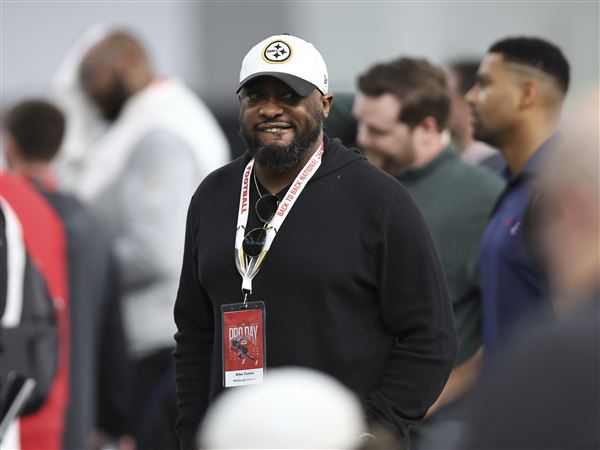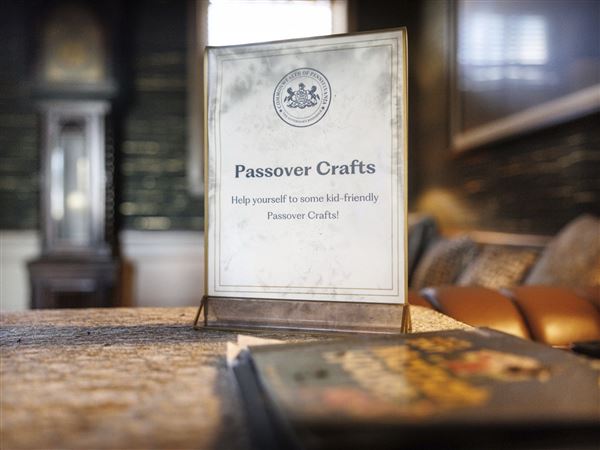Former Pirates idol and Hall of Famer Ralph Kiner had the kind of swing that kept patrons in their seats at Forbes Field until he ambled to the plate for his final at-bat.
A natural artist of the long ball, Mr. Kiner led the National League in home runs for each of his seven full seasons with the Pirates from 1946 to 1952, including a club-record 54 homers in 1949.
“People just waited there until he came up in the ninth inning,” said former teammate Frank Thomas, 84. “When they knew he was coming to bat they made it a point to stay.”
He later charmed generations of baseball fans in the broadcast booth as a commentator and analyst with the New York Mets for more than a half century.
Mr. Kiner died Thursday at his home in Rancho Mirage, Calif., of natural causes. He was 91.
“All of us at the Pittsburgh Pirates have heavy hearts upon learning of Ralph Kiner’s passing,” said Pirates President Frank Coonelly. “Ralph was one of the greatest players to ever wear a Pirates uniform and was a tireless ambassador for the game of baseball. He was a treasured member of the Pittsburgh community during his seven years with the Pirates.”
Mr. Kiner made his major league debut with the Pirates on April 12, 1946, a time when the country was returning to normalcy after World War II.
He was a handsome, clean-cut young man of 23, and swatted 23 homers that rookie year, followed by seasons of 51 homers, 40, 54, 47, 42 and 37.
The Pirates didn’t always win, but Kiner made the games worth it.
“I couldn’t go anywhere,” Kiner once joked of his days with the Pirates. “Everywhere I went I was recognized. If I went out to dinner people would flock to the table. I really had to hide out.”
He ranks second on the Pirates all-time home run list with 301. His No. 4 jersey was retired in 1987, 12 years after he was admitted to the Hall of Fame.
His ratio of 7.1 home runs per 100 at-bats trails only Mark McGwire, Babe Ruth and Barry Bonds, according to the National Baseball Hall of Fame and Museum.
“People stayed around to watch him hit those rocket home runs,” said former Pirates right-hander Bob Friend, 83. “He was a great teammate. All the players liked him. He was just a great guy. … Two players I saw hit the biggest power home runs ever? One was Ralph Kiner and the other was Willie Stargell. They hit those towering home runs. Just pure, home run hitters.”
Mr. Thomas, who debuted with the Pirates in 1951, nearly got off to a rough start with Mr. Kiner at his first major league spring training.
“One time I picked up his bat when I was a rookie. He said, ‘Son, you don’t do that.’ I said OK,” recalled Mr. Thomas. “But he was one great guy. You could sit down and you could talk to him. I’m really happy that I had the opportunity to play with him and to be friends with him.”
Kiner was traded to the Chicago Cubs on June 4, 1953, and finished his career with the Cleveland Indians in 1955 before entering the broadcast booth in 1961.
“I know when [Pirates general manager] Branch Rickey traded him in 1953 it was one of the few mistakes that Rickey made,” said Friend. “That was a big loss for us. I think he probably would’ve hit a lot more home runs.”
An original Met, Kiner became known for his postgame show “Kiner’s Korner” and his engaging interviews well through his 80s and as late as last season.
Kiner was famous for his comic malaprops, like this one: “If Casey Stengel were alive today, he’d be spinning in his grave.”
Or the hilarious: “On Father’s Day, we again wish you all a Happy Birthday.”
“Ralph Kiner was one of the most beloved people in Mets history — An original Met and extraordinary gentleman,” Mets CEO Fred Wilpon said in a statement. “After a Hall of Fame playing career, Ralph became a treasured broadcasting icon for more than half a century. His knowledge of the game, wit, and charm entertained generations of Mets fans. Like his stories, he was one of a kind.”
Major League Baseball Commissioner Bud Selig also released a statement on his passing.
“Ralph Kiner was one of the greatest sluggers in National League history, leading the Senior Circuit in home runs in each of the first seven years of his Hall of Fame career. His consistent power and patience in the heart of the Pirates lineup made him a member of our All-Century Team and, in many respects, a player ahead of his time.
“Ralph dominated at the plate for a decade, but his contributions to our National Pastime spanned generations. For 52 years, Ralph was a one-of-a-kind voice of the Mets, linking baseball’s unparalleled history to New York’s new National League franchise since its very inception.”
Kiner is survived by five children and 12 grandchildren.
First Published: February 6, 2014, 8:47 p.m.
Updated: February 7, 2014, 11:54 a.m.

















